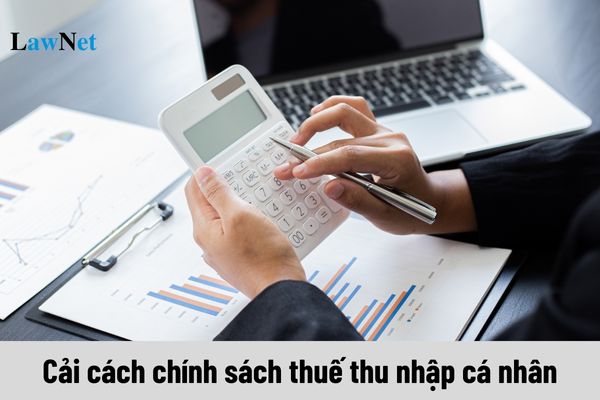What are the solutions for PIT policy reform according to the tax reform strategy until 2030 in Vietnam?
What are the solutions for PIT policy reform according to the tax reform strategy until 2030 in Vietnam?
According to Point dd, Clause 1, Section 3, Article 1 of Decision 508/QD-TTg in 2022, the solutions for PIT policy reform according to the tax reform strategy until 2030 in Vietnam are as follows:
- Additionally review taxable items;
- study any amendments and supplements aimed at adjusting the amounts and tax rates suitable to taxable income according to the nature of each type of income, imposing simple conditions in personal income tax finalization on both taxpayers and tax authorities, preventing acts of tax evasion and avoidance;
- study any amendments and supplements to regulations on tax exemption and reduction in accordance with our country's socio-economic context over periods of time and international practices;

What are the solutions for PIT policy reform according to the tax reform strategy until 2030 in Vietnam? (Image from the Internet)
Who are PIT payers in Vietnam?
Under Article 2 of the PIT Law 2007, the following regulations apply:
Taxpayers
1. Personal income taxpayers include residents who earn taxable incomes specified in Article 3 of this Law inside and outside the Vietnamese territory and non-residents who earn taxable incomes specified in Article 3 of this Law inside the Vietnamese territory.
2. Resident means a person who satisfies one of the following conditions:
a/ Being present in Vietnam for 183 days or more in a calendar year or 12 consecutive months counting from the first date of their presence in Vietnam;
b/ Having a place of habitual residence in Vietnam, which is a registered place of permanent residence or a rented house for dwelling in Vietnam under a term rent contract.
3. Non-resident means a person who does not satisfy any of the conditions specified in Clause 2 of this Article.
Thus, based on the above regulations, the subjects required to pay individual income tax include:
- Personal income taxpayers include residents who earn taxable incomes specified in Article 3 of the Personal Income Tax Law 2007 inside and outside the Vietnamese territory and non-residents who earn taxable incomes specified in Article 3 of the Personal Income Tax Law 2007 inside the Vietnamese territory.
- Resident means a person who satisfies one of the following conditions:
+ Being present in Vietnam for 183 days or more in a calendar year or 12 consecutive months counting from the first date of their presence in Vietnam;
+ Having a place of habitual residence in Vietnam, which is a registered place of permanent residence or a rented house for dwelling in Vietnam under a term rent contract.
- Non-resident individuals are those who do not meet the following conditions:
+ Being present in Vietnam for 183 days or more in a calendar year or 12 consecutive months counting from the first date of their presence in Vietnam;
+ Having a place of habitual residence in Vietnam, which is a registered place of permanent residence or a rented house for dwelling in Vietnam under a term rent contract.
What are the methods for submitting PIT refund claims by employees in Vietnam?
According to Clause 2, Article 72 of the 2019 Law on Tax Administration, the regulations are as follows:
Receipt and processing of tax refund claims
1. Tax authorities shall process tax refund claims as follows:
a) Supervisory tax authorities of taxpayers shall receive tax refund claims in accordance with tax laws. Collecting tax authorities shall receive claims for refund of overpaid amounts. In case of refund of overpaid amounts under an annual/terminal statement of corporate income tax or personal income tax, the tax authority that received the statement shall provide the refund.
b) Collecting customs authorities shall receive tax refund claims in accordance with tax laws. Customs authorities where exit procedures are followed shall receive tax refund claims submitted by foreigners and Vietnamese people residing overseas.
2. Tax refund claims may be submitted:
a) in person at tax authorities;
b) by post;
c) electronically through online portals or tax authorities.
3. Within 03 working days from the day on which the claim is received, the tax authority shall inform the taxpayer in writing of whether the claim is granted or rejected.
4. The Minister of Finance shall elaborate this Article.
Thus, employees can submit PIT refund claims via the following methods:
- in person at tax authorities;
- by post;
- electronically through online portals or tax authorities.

